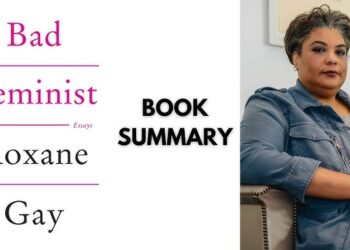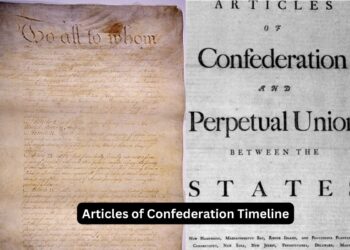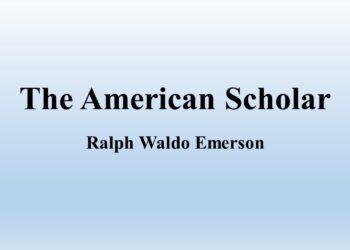Henry David Thoreau was an American philosopher, writer, and naturalist who is best known for his book “Walden,” which describes his experience of living a simple and self-sufficient life in a cabin in the woods. Thoreau was a critic of industrialization and consumerism, and his views on the economy can be seen in his various essays.
Economy Essay Summary By Henry David Thoreau-In his essay “Economy,” Thoreau explores the relationship between work, material possessions, and true fulfillment. He argues that the pursuit of wealth and material possessions often leads to a loss of freedom and an erosion of one’s true self. Thoreau believed that people become enslaved to their desires and spend their lives working to acquire more and more things, without ever truly enjoying the fruits of their labor.
Economy Essay Summary By Henry David Thoreau-Thoreau suggests that true wealth lies not in material possessions but in a simple and deliberate way of living. He advocates for a lifestyle that is in harmony with nature and emphasizes the importance of self-reliance. Thoreau believes that by reducing our desires and needs, we can free ourselves from the constraints of consumer culture and find greater satisfaction in the simple pleasures of life.
Also Read-
- Civil Disobedience Essay Summary By Henry David Thoreau
- Where I Lived, and What I Lived For Essay Summary By Henry David Thoreau
- The Superannuated Man Essay Summary By Charles Lamb
- On Going a Journey Essay Summary By William Hazlitt
Economy Essay Summary By Henry David Thoreau-In “Economy,” Thoreau also criticizes the idea of progress and the relentless pursuit of economic growth. He argues that this pursuit often comes at the expense of our well-being and the health of the natural world. Thoreau questions the value of a society that prioritizes economic productivity over individual happiness and the preservation of the environment.
Overall, Thoreau’s essay “Economy” challenges the prevailing notions of wealth and success in society. He urges individuals to reconsider their relationship with material possessions and to seek a simpler and more intentional way of living. Thoreau’s ideas continue to resonate today, as many people question the impact of consumerism and the pursuit of economic growth on our well-being and the health of the planet.
About Henry David Thoreau
Economy Essay Summary By Henry David Thoreau-Henry David Thoreau was an American philosopher, author, and naturalist who was born on July 12, 1817, in Concord, Massachusetts. His most famous works include the novels “Walden” and “Civil Disobedience,” which have had a significant influence on American literature and thought. Thoreau’s writings reveal his close relationship with nature, his scepticism of civilization, and his pursuit of autonomy and self-knowledge.
Economy Essay Summary By Henry David Thoreau-In addition to being profoundly affected by his Transcendentalist ideas, Thoreau grew raised in a middle-class home. The 19th century saw the rise of transcendentalism, a philosophical movement that emphasised the value of individualism, independence, and the inherent goodness of both nature and people. Experiences and observations of nature made by Thoreau had a big impact on how he saw the world.
Economy Essay Summary By Henry David Thoreau-At the age of 27, Thoreau started an experiment that would have a significant impact on his thinking and writing in 1845. He constructed a modest cabin and resided there for two years, two months, and two days near Concord on the shores of Walden Pond. Thoreau made an effort to live simply and independently, growing his own food, taking in the surrounding environment, and spending time in quiet reflection. The inspiration for his book “Walden; or, Life in the Woods” came from his experiences at Walden Pond.
Economy Essay Summary By Henry David Thoreau-The transcendentalist essay “Walden,” which was published in 1854, discusses the advantages of living simply, in close proximity to nature, and independently. While residing at Walden Pond, Thoreau records his daily activities, nature observations, and philosophical reflections. The quest of personal freedom, the value of self-reflection, and the notion that genuine prosperity and fulfilment are not found in material goods but rather in a purposeful and intentional way of living are some of the themes covered in the book.
Thoreau’s “Walden” explores the subject of work and its connection to identity in depth. He bemoans the unrelenting quest of financial prosperity and stresses the significance of locating meaningful employment that is in line with one’s values and interests. Thoreau contests the idea that success is determined by society norms and encourages people to define success and fulfilment for themselves.
Economy Essay Summary By Henry David Thoreau-“Civil Disobedience,” an article by Thoreau that was published in 1849, is a noteworthy example. Thoreau’s decision to forego paying taxes in opposition to slavery and the Mexican-American War served as the inspiration for this article. The moral duty of people to oppose unfair laws and government actions using peaceful methods is examined in “Civil Disobedience”. Thoreau contends that people have a duty to follow their conscience and live up to their own moral standards, even if that means breaking the law.
Thoreau had a profound impact on leaders like Mahatma Gandhi and Martin Luther King Jr., who both drew inspiration from his writings in their own efforts for social justice. Thoreau’s thoughts on civil disobedience and peaceful resistance were also influential.
Economy Essay Summary By Henry David Thoreau-In addition to “Walden” and “Civil Disobedience,” Thoreau also produced a large number of diary entries and essays on a variety of subjects, including nature, literature, philosophy, and social issues. His writings frequently mixed in-depth descriptions of the natural environment with philosophical musings, emphasising the connection between people and nature.
Lyrical prose, detailed descriptions of nature, and thought-provoking concepts define Thoreau’s writing style. His writings reveal a profound respect for the wisdom and beauty of nature as well as a critical analysis of human society and its values.
Conclusion
Henry David Thoreau’s essay “Economy” offers a thought-provoking critique of the prevailing economic system and the pursuit of wealth and material possessions. Thoreau challenges the notion that material wealth leads to true fulfillment and argues for a simpler and more intentional way of living.
Economy Essay Summary By Henry David Thoreau-Thoreau emphasizes the importance of self-reliance, reducing desires, and finding contentment in the simple pleasures of life. He questions the value of a society that prioritizes economic growth over individual well-being and the health of the natural world.
Thoreau’s ideas continue to be relevant today, as many individuals and societies grapple with the negative consequences of consumerism and the relentless pursuit of economic progress. His call for a more harmonious and sustainable relationship with the environment and a reevaluation of our values resonates in an era where people are seeking alternative models of prosperity and fulfillment.
Economy Essay Summary By Henry David Thoreau-Overall, Thoreau’s essay encourages readers to reconsider their relationship with the economy and material possessions, urging them to prioritize inner satisfaction, self-reliance, and a deeper connection with nature.
FAQ.
Q: Who was Henry David Thoreau?
A: Henry David Thoreau was an American philosopher, writer, and naturalist who lived in the 19th century. He is best known for his book “Walden,” which chronicles his experience of living a simple and self-sufficient life in a cabin in the woods.
Q: What is Thoreau’s essay “Economy” about?
A: Thoreau’s essay “Economy” explores his views on work, material possessions, and true fulfillment. He criticizes the pursuit of wealth and consumerism, arguing that they often lead to a loss of freedom and a disconnection from one’s true self. Thoreau advocates for a simpler, more deliberate way of living that values self-reliance and harmony with nature.
Q: What are Thoreau’s main ideas in “Economy”?
A: Thoreau’s main ideas in “Economy” include the belief that true wealth lies in a simple and deliberate way of living rather than material possessions. He questions the value of society’s emphasis on economic growth and progress, suggesting that it often comes at the expense of individual well-being and the environment. Thoreau promotes self-reliance, reducing desires, and finding contentment in the simplicity of life.
Q: Why are Thoreau’s ideas relevant today?
A: Thoreau’s ideas remain relevant today because they challenge the prevailing notions of wealth, success, and consumerism. Many people are questioning the impact of an overly materialistic and consumption-driven society on their well-being and the health of the planet. Thoreau’s call for a simpler, more intentional way of living and a deeper connection with nature resonates in an era where individuals and societies seek alternative models of prosperity and fulfillment.
Q: What is Thoreau’s overall message in “Economy”?
A: Thoreau’s overall message in “Economy” is to encourage individuals to reconsider their relationship with the economy and material possessions. He urges people to prioritize self-reliance, reduce desires, and find contentment in the simple pleasures of life. Thoreau questions the value of a society that prioritizes economic growth over individual well-being and the preservation of the natural world. His essay calls for a more harmonious and sustainable way of living that values inner satisfaction and a deeper connection with nature.
















